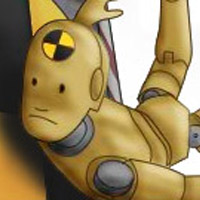
ucsd chemistry course offerings 2022
Prerequisites: CHEM 11 or good knowledge of high school chemistry. Prerequisites: consent of instructor. Prerequisites: CHEM 6C or 6CH and CHEM 187 or EDS 122. A degree in chemistry and biochemistry from UCSD can open the door for future success in the sciences. Advanced aspects of structure and bonding in transition metal complexes with major emphasis on Molecular Orbital Theory. Intensive coverage of modern spectroscopic techniques used to determine the structure of organic molecules. Organic Chemistry Course Updates - University of California, San Diego Topics include self-assembled monolayers, block copolymers, liquid crystals, photoresists, organic electronic materials, micelles and vesicles, soft lithography, organic colloids, organic nanocomposites, and applications in biomedicine and food science. (May not be offered every year. Topics include quantum mechanics, molecular structure, spectroscopy fundamentals and applications to biomolecules, optical spectroscopy, NMR, and statistical approaches to protein folding. Copyright 2023 Regents of the University of California. Students may only receive credit for one of the following: CHEM 149A or 171. Prerequisites: BIMM 100 or CHEM 114C and CHEM 40C, 40CH, or 41C. (May not be offered every year. Renumbered from CHEM 140A. Topics include symmetry, geometry of diffraction, detection of diffraction, intensity of diffracted waves, phase problem and its solution, heavy atom method, isomorphous replacement, anomalous dispersion phasing methods (MAD), direct methods, and molecular replacement. Prerequisites: advanced graduate-student standing. CHEM 227. Prerequisites: undergraduate courses in biochemistry, CHEM 114A or equivalent. Prerequisites: Completion of ninety units with a GPA of 2.5, and a completed and approved Special Studies form (UC San Diego Application for Enrollment Special Studies Courses 197, 198, 199), and department stamp. Topics include colligative properties, bulk material properties, chemical equilibrium, acids and bases, and thermodynamics. Molecules that Changed the World (4). May be coscheduled with CHEM 190. Prerequisites: CHEM 114A and 114C. Fundamentals of photochemistry and photophysics are treated in this course. CHEM 298. The course addresses questions and issues arising from the expected increases in the development of nanotechnology-based consumer products and their potential effects on the environment. Recommended as the third course of the sequence. One petition per course. 2022 - 2023. We would like to show you a description here but the site won't allow us. Topics covered include group theory, and its application to vibrational, magnetic resonance and Raman spectroscopy. Prerequisites: CHEM 43A, 143A, 43AM or 143AM, and CHEM 40B or 140B. Seminars presented by faculty and students on topics of current interest in inorganic chemistry, including areas such as bioinorganic, organometallic and physical-inorganic chemistry. Independent literature or laboratory research by arrangement with and under the direction of a member of the Department of Chemistry and Biochemistry faculty. Pharmacology and Toxicology (4). CHEM 105B. (F, W, S), CHEM 6BH. ), CHEM 267. Emphasis on techniques to study the dynamics of macromolecular complexes and the mechanism of RNA catalysis. Prerequisites: graduate standing. ), CHEM 222. (S/U grades only.) UC San Diego Summer Session CHEM 231. Intended for nonscience majors. CHEM 40AH. The role of chemistry in society, and how chemical synthesisthe art and science of constructing moleculesshapes our world. Each student will have his or her own project. ), CHEM 229. CHEM 7LM. Prerequisites: graduate standing. (S/U grades only.) The role of metal ions in biological systems, with emphasis on transition metal ions in enzymes that transfer electrons, bind oxygen, and fix nitrogen. Identification of unknown organic compounds by a combination of chemical and physical techniques. (S/U grades only.). Intended course offerings for AY 2022-2023, Available seminars for first and fourth year students, Location:York Hall 4010Hours:8:30 a.m.-12 p.m. 1:00 p.m. - 4:00 p.m.Phone:(858) 534-4856. Recommended: concurrent or prior enrollment in MATH 10B or 20B. For course descriptions not found in the UC San Diego General Catalog 202223, please contact the department for more information. Special Topics in Chemistry (2). May be coscheduled with CHEM 154. This table shows the approximate frequency of SIO Department course offerings. UC San Diego | Academic Year 2022-2023 Terms and Courses May be coscheduled with CHEM 185. The emphasis is on applications and reliability. CHEM 126B. May be coscheduled with CHEM 157. Prerequisites: consent of instructor. Prerequisites: graduate standing. All courses, faculty listings, and curricular and degree requirements described herein are subject to change or deletion without notice. Prerequisites: upper-division standing, 2.5 minimum GPA, consent of instructor and department. The course content is built on a background in mathematics and physical chemistry, and provides an introduction to computational theory and molecular mechanics. Intensive coverage of modern spectroscopic techniques used to determine the structure of organic molecules. Laboratory course in experimental physical chemistry. Selected topics in RNA structure and function, such as the ribosome, ribozyme, antibiotics, splicing and RNA interference, as they relate to the RNA role in gene expression and regulation. Prerequisites: advanced graduate-student standing. Topics include thermodynamics, first and second laws, chemical equilibrium, solutions, kinetic theory, enzyme kinetics. May be coscheduled with CHEM 254. CHEM 114D. Dr. Rudd received his doctorate in Chemistry from UC San Diego in 2019. Copyright 2023 Regents of the University of California. Radiative and nonradiative processes, coherent phenomena, and the density matrices. We pride ourselves on providing students with the individual attention that leads to academic success. Students may not receive credit for both CHEM 114A and BIBC 100. Prerequisites: CHEM 152 or 154. Dr. Archambault has an appointment at UCSD as a clinical instructor within the Department of Surgery, Division of Otolaryngology and in the Plastic Surgery Department. The emphasis is on applications and reliability. Chemical principles applied to the study of atmospheres. CHEM 187. Tentative NANO and CENG course offerings for 2022-2023 can be found . UC San Diego 9500 Gilman Dr. La Jolla, CA 92093 (858) 534-2230 The UC San Diego Academic Senate's Educational Policy Committee determined that students who were admitted to UC San Diego in Fall 2016 and earlier will be granted an exception to utilize CHEM 40A, 40B, 40C, 43A, or 43AM (or their Honors equivalencies) as upper division for all degree requirements, so long as the lower division version of the Course Catalog. Genome, Epigenome, and Transcriptome Editing (4). Bioorganic and Natural Products Chemistry (4). To enroll in a course that requires department approval, please submit a Course Pre-Authorization . CHEM 123. (S/U grades only.) Introduction to Glycosciences (4). Prerequisites: CHEM 40C, 40CH, or 41C. Key topics covered in this course include chemical statistics, kinetic theory, and reaction kinetics. CHEM 156. (Cross-listed with BGGN 230.) For course descriptions not found in the UC San Diego General Catalog 2020-21, please contact the department for more information. CHEM 43A. Course in computational methods, with focus on quantum chemistry. Prerequisites: grade of B or higher in CHEM 40A, 40AH, 140A, or 140AH. May be taken for credit up to four times, with a change in topic, and permission of the department. CHEM 214. Prerequisites: graduate standing. First quarter of a three-quarter sequence intended for science and engineering majors. Courses in the SIO Department | Scripps Institution of Oceanography Emphasis will be placed on contemporary approaches to the isolation and characterization of mammalian genes and proteins, and molecular genetic approaches to understanding eukaryotic development and human disease. Students may not receive credit for both CHEM 7L and CHEM 7LM. The Scope of Chemistry and Biochemistry (1) Prerequisites: CHEM 40A or 140A (a grade of C or higher in CHEM 140A or 40A is strongly recommended). Remember that before you can get transfer credit, you must submit a Pre-Approval petition to the UCSD Chemistry and Biochemistry department to ensure that the course is equivalent to a Chemistry course at UCSD. CHEM 259. Course Information - University of California, San Diego May be coscheduled with CHEM 286. You can also find a complete list of all undergraduate courses offered by the department. . The topics emphasized will vary from year to year. May be taken for credit after credit for CHEM 6B. Ionic, covalent, metallic bonding compared with physical properties. Renumbered from CHEM 140CH. Renumbered from CHEM 140B. P/NP grades only. CHEM 219A. Foundations of Teaching and Learning Science (4). (858) 534-7074. CHEM 291. Application of electrochemical techniques to chemistry research. Courses For course descriptions not found in the UC San Diego General Catalog 2022-23, please contact the department for more information. Prerequisites: department approval required and a completed and approved Special Studies form (UC San Diego Application for Enrollment Special Studies Courses 197, 198, 199). May not receive credit for both CHEM 4 and CHEM 11. It is required for first-time teaching assistants. (May not be offered every year.) Instructor (s) Chem. Program or materials fees may apply. May be coscheduled with CHEM 152. CHEM 100A. We offer programs for the Doctoral, Masters, and Joint Doctoral degrees. May be coscheduled with CHEM 164. This course explores the potential impacts of nanoscience and nanotechnology on environmental processes and human health as well as the sustainable design, development, and use of nanotechnologies. (May not be offered every year. Introduction to substitution, addition, and elimination reactions. Experimental Methods in Chemistry (4). A qualitative approach to the mechanisms of various organic reactions; substitutions, additions, eliminations, condensations, rearrangements, oxidations, reductions, free-radical reactions, and photochemistry. Planned Course Offerings. Information on our courses can be found in this section, along with other helpful course-associated information. Key conceptual obstacles in science will be explored. Concurrent enrollment in MATH 20A or higher. (May not be offered every year.). Honors General Chemistry II (4). FALL 2022. Mathematics for Physical Chemistry (4). Topics of particular emphasis include delivery of genome editing agents, gene drives, and high-throughput genetic screens. Prerequisites: graduate standing. RNA Structure, Function, and Biology (4). May be coscheduled with CHEM 256. David W Bilger. Course Descriptions; Course Web Pages; FAQs; General Chemistry Lab Waiver; . The primary aim of this course is to provide an overview of fundamental facts, concepts, and methods in glycoscience. The course will focus on the development and analysis of submicroscopic models of matter and structure-property relationships to explain, predict, and control chemical behavior. Prerequisites: graduate standing. Topics: structure of polymers; mechanisms of polymer synthesis; characterization methods using calorimetric, mechanical, rheological, and X-ray-based techniques; and electronic, mechanical, and thermodynamic properties. Prerequisites: graduate standing. Summer Session - University of California, San Diego CHEM 204 students will be required to complete additional paper and/or exam beyond that expected of students in CHEM 104. TBD . Biochemistry and Biophysics of Cell Membranes (4). There is a new CHEM 41 series being offered beginning Fall 2022. This is the third quarter of a three-quarter organic chemistry sequence intended for chemistry, biochemistry, and engineering majors and interested students. Department of Chemistry and Biochemistry. Also included are metal complexes in medicine, toxicity, and metal ion storage and transport. Students may not receive credit for both CENG 134, CHEM 134, or NANO 134. UC San Diego 9500 Gilman Dr. La Jolla, CA 92093 (858) 534-2230 . Topics include carbohydrates, lipids, amino acids and proteins, with an introduction to metabolic pathways in human physiology. Prerequisites: CHEM 114A or BIBC 100. The Senior Seminar Program is designed to allow senior undergraduates to meet with faculty members in a small group setting to explore an intellectual topic in chemistry or biochemistry. ), CHEM 118. Visiting students can apply and enroll after the application process opens on April 24, 2023. Organic Chemistry I: Structure and Reactivity (4). Due to faculty leaves and unanticipated events, there will be classes that deviate from the frequency shown here. Explores strategies that teachers may use to pose problems that stimulate students intellectual curiosity. Biochemical Structure and Function (4). The course is designed to meet federal grant requirements for training in the responsible conduct of research. Recommended: elementary biochemistry as treated in CHEM 114A or BIBC 100 and a basic course in cell biology or consent of the instructor. A laboratory course combining hands-on mass spectrometry and bioinformatics tools to explore the relationship between structure and function in macromolecules. CHEM 143C. Prerequisites: graduate standing. What Dentists Can Easily Miss and What they Need to Look for in CBCT Summer 2023 Session 1. Time-dependent behavior of systems; interaction of matter with light; selection rules. Prerequisites: CHEM 120A. CHEM 1. See list. Introduction to Glycosciences (4). 2022. CHEM 290. A continuation of the discussion of structure, bonding, and reactivity with emphasis on transition metals and other elements using filled d orbitals to form bonds. Structure and Properties of Organic Molecules (4). Prerequisites: consent of instructor. CHEM 195. With CHEM 130 and 131, CHEM 132 is part of the Physical Chemistry sequence taught over three quarters. May be coscheduled with CHEM 257. (NB: Biannual means twice each year; biennial means every other year.) (858) 534-5258. UC San Diego General Catalog 2022-23 Every effort has been made to ensure the accuracy of the information in the UC San Diego General Catalog. Current subtitles will be listed on the Schedule of Classes. CHEM 255. Information on our courses can be found in this section, along with other helpful course-associated information. Stresses importance of molecular design, optimized reaction conditions for development of practically useful synthesis, and problem-solving skills. Look for courses that their chemistry major requires. Honors General Chemistry III (4). CHEM 154. PDF Fall 2023 Course Descriptions (Cross-listed with SIO 141.) Practical exercises will be included. This course is geared to introduce students with limited prior exposure to the field, supported by selected readings and class notes. Physical Chemistry Laboratory (4). P/NP grades only. Special Topics in Analytical Chemistry (4). (May not be offered every year. Introduction to biochemistry from a structural and functional viewpoint. Separation, purification, spectroscopy, product analysis, and effects of reaction conditions. . Course in computational methods, with focus on molecular simulations. May be coscheduled with CHEM 225. Our prestigious program will prepare you for any of a variety of careers, including graduate study, medical or professional school, and industryincluding work in pharmaceuticals and biotechnology. (May not be offered every year. Recommended background: CHEM 133 and MATH 20D or their equivalents. Electronic structure descriptions are used to rationalize structure/reactivity relationships. Prerequisites: CHEM 232A or consent of instructor. Practical methods to make drugs currently in use and to design future drugs. Recommended: concurrent or prior enrollment in MATH 20B. Second quarter of a three-quarter sequence intended for science and engineering majors. Foundations of polymeric materials. Physical Biochemistry II: Quantum and Statistical Mechanics of Biomolecules (4). May be coscheduled with CHEM 214. Origins of Life and the Universe (4). CHEM 43AM. Molecular Biophysics Student Seminar (2). Advanced Inorganic Chemistry Laboratory (4). . The course content is built on a background in mathematics and physical chemistry, and provides an introduction to computational theory, ab initio methods, and semiempirical methods. HDS 175. Lectures covering fundamentals will be combined with literature-based discussions and presentations. A safety exam must be passed. Condenses a year of introductory training in analytical, inorganic, physical, and synthetic techniques into one intensive quarter. (May not be offered every year.) Prerequisites: CHEM 6C or 6CH, PHYS 1C or 2C or 2D, and MATH 10C or 20C. If approved, credit can be . Prerequisites: CHEM 114A and 120A. only show sections with seats available show the results in a popup window. CHEM 145. Students may not receive credit for CHEM 126B and either CHEM 126 or CHEM 130. CHEM 41B. Introduction to Teaching Science (2). UC San Diego Summer Session 2023 Preview of Classes The Preview of Classes is updated daily. This course discusses RNA structure and function, as well as biological pathways involving RNA-centered complexes. 2023-24 Course Offerings - University of California, San Diego Synthetic Methods in Organic Chemistry (4). Emphasis is on methods of preparation of carbon-carbon bonds and oxidation reduction sequences. Students may only receive credit for one of the following: CHEM 43A, 43AM, 143A, or 143AM. CHEM 105A. Organic chemistry of biologically important molecules: carboxylic acids, carbohydrates, proteins, fatty acids, biopolymers, natural products. Students are required to attend a weekly class on methods of teaching chemistry and will teach a discussion section of one of the lower-division chemistry courses. Expand All. Prerequisites: graduate-student standing and consent of instructor. May not be taken for credit after CHEM 6BH. Students may not receive credit for CHEM 131 and either CHEM 127 or CHEM 126A. Topics include symmetry, geometry of diffraction, detection of diffraction, intensity of diffracted waves, phase problem and its solution, heavy atom method, isomorphous replacement, anomalous dispersion phasing methods (MAD), direct methods, and molecular replacement. Topics will include biosynthesis of natural products, molecular recognition, and small molecule-biomolecule interactions. Thursday, May 11, 2023. Our alumni are accepted to the best graduate and professional schools in the country, and have gone on to establish successful scientific careers. Recommended: some background in biochemistry and/or cellular biology. General Catalog 2022-23 Catalog of Record Prerequisites: CHEM 120A, 120B and 43A, 143A, 43AM or 143AH. Introduces mathematical tools to simulate biological processes at multiple scales. Hands-on experience provides training for careers in industrial research and for future thesis research. CHEM 111. Effective for Fall 2022: CHEM 40 series is being phased out. Group discussion of research activities and progress of the group members. This is the second quarter of a three-quarter organic chemistry sequence for chemistry, biochemistry, and engineering majors and interested students. Prerequisites: graduate student standing. This course covers thermodynamics and kinetics of biomolecules from fundamental principles to biomolecular applications. This course covers quantum and statistical mechanics of biomolecules. CHEM 260. Overview of new systems biology -omics approached to lipid metabolism and cell signaling, including interrogating gene and lipid databases, techniques for lipidomics, and implications for profiling and biomarker discovery in blood and tissues relevant to inflammatory and other human diseases. Advanced organic synthesis. Phase transitions. Formal seminars or informal puzzle sessions on topics of current interest in organic chemistry, as presented by visiting lecturers, local researchers, or students. The application of techniques to study protein structure and function, including electrophoresis, protein purification, column chromatography, enzyme kinetics, and immunochemistry. Atmospheric photochemistry, radical reactions, chemical lifetime determinations, acid rain, greenhouse effects, ozone cycle, and evolution are discussed. Renumbered from CHEM 140AH. (May not be offered every year.). May be taken for credit up to four times as topics vary. Similar to CHEM 40B but emphasizes mechanistic aspects of reactions and effects of molecular structure on reactivity. The Department of Chemistry & Biochemistry offers dozens of undergraduate courses throughout the academic year including core, elective, lab, and research courses. Independent literature or discipline-based education research by arrangement with, and under the direction of, a member of the Department of Chemistry and Biochemistry faculty. Students may only receive credit for one of the following: CHEM 172 or 149B. Experimental and theoretical approaches to understand protein dynamics, enzyme kinetics, and mechanisms will be covered. Renumbered from CHEM 133. Students may not receive credit for both CHEM 100B and 101. Intended course offerings for AY 2022-2023. Prerequisites: graduate standing. This is the first quarter of a three-quarter organic chemistry sequence intended for chemistry, biochemistry, and engineering majors and interested students. Third quarter of a three-quarter sequence intended for science and engineering majors. CHEM 114B. Letter grades only. To support teaching competency, regular meetings with the instructor and attendance at lectures are required. Reading and Research in Chemical Education (2 or 4). Publicly available databases and bioinformatics tools are now an indispensable component of biomedical research. Analysis of macromolecular structures by X-ray diffraction. Summer 2023 Session 2. Methods of analysis, chemistry of hydrocarbons, chemistry of the carbonyl group. For more details regarding courses, please refer to the UC San Diego Course Catalog. Mathematics for Physical Chemistry (4). Chemical Principles of Marine Systems (4). Prerequisites: CHEM 40C, 40CH, or 41C. A degree in chemistry and biochemistry from UCSD can open the door for future success in the sciences. Power, Wealth, and Inequality in Human Development. Prerequisites: graduate standing. General Chemistry Laboratory (4). P/NP grades only. Topics of special interest in analytical chemistry. Methodology of mechanistic organic chemistry; integration of rate expression, determination of rate constants, transition state theory; catalysis, kinetic orders, isotope effects, solvent effects, linear free energy relationship; product studies, stereochemistry; reactive intermediates; rapid reactions. Enrollment is limited to majors in the Department of Chemistry and Biochemistry unless space is available. An understanding of nomenclature, stoichiometry, and other fundamentals is assumed. This course discusses planning economic routes for the synthesis of complex organic molecules. Emphasis is on current research topics in atmospheric, oceanic, and geological environments. (May not be offered ever year.). along with other helpful course-associated information. Program or materials fees may apply. CHEM 194. See Summer Session webpage. A discussion of current topics in chemical biology including mechanistic aspects of enzymes and cofactors, use of modified enzymes to alter biochemical pathways, chemical intervention in cellular processes, and natural product discovery.
Brightbuilt Sebago Ranch,
Katie Liner Pettit,
What Are The 6 Royal Agricultural Shows,
How Do Crips Text Messages,
Fabletics Fundamental Short Vs Franchise,
Articles U





